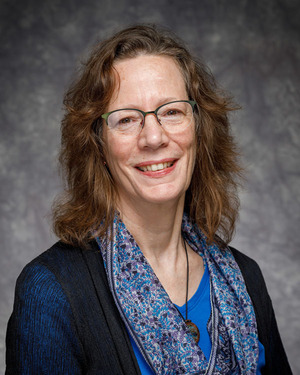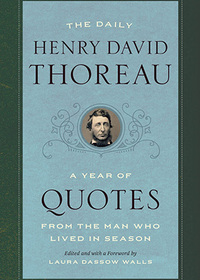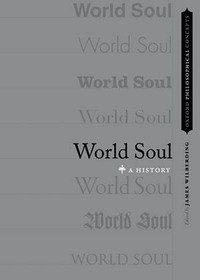
- University of Notre Dame
- William P. and Hazel B. White Professor of English
- Residential Fellow (2018-2019)
- "Children of the Fire: The Many Lives of American Transcendentalism"
Laura Dassow Walls is the William P. and Hazel B. White Professor of English and a Reilly Fellow in the History and Philosophy of Science at the University of Notre Dame. She works in the field of literature and science with a focus on nineteenth-century literature and the history of ecological thought. While her research centers on Henry David Thoreau, Ralph Waldo Emerson, and American Transcendentalism more generally, her quest to understand these American authors in both transdisciplinary and cosmopolitical contexts has led to a continuing interest in British, French, and German philosophers and scientists, with the goal of bringing the insights of science studies into literary theory and criticism.
Professor Dassow Walls’s book Henry David Thoreau: A Life (Chicago, 2017) won the 2018 Los Angeles Times Book Award for Biography and was named one of the "Notable Books of 2017" by The New York Times. Her other recent books include the co-edited Views of Nature by Alexander von Humboldt in a new translation by Mark Person (2014) and The Passage to Cosmos: Alexander von Humboldt and the Shaping of America (2009), which won the OAH Merle Curti Prize for intellectual history and the MLA James Russell Lowell Prize for literary studies. Her earlier books include Seeing New Worlds: Henry David Thoreau and Nineteenth-Century Natural Science (1995), Emerson’s Life in Science: The Culture of Truth (2003), and co-edited Oxford Handbook of Transcendentalism (2010).
Professor Dassow Walls has received numerous awards, including the Ralph Waldo Emerson Society Distinguished Achievement Award (2012), two National Endowment for the Humanities Fellowships, a Guggenheim Fellowship (2010-11), and the Russell Research Award for the Humanities and Social Sciences (University of South Carolina, 2010).
Publications
-
The Daily Henry David Thoreau: A Year of Quotes from the Man Who Lived in Season
The University of Chicago Press, 2020

Modernity rules our lives by clock and calendar, dividing the stream of time into units and coordinating every passing moment with the universal globe. Henry David Thoreau subverted both clock and calendar, using them not to regulate time’s passing but to open up and explore its presence. This little volume thus embodies, in small compass, Thoreau’s own ambition to “live in season”—to turn with the living sundial of the world, and, by attuning ourselves to nature, to heal our modern sense of discontinuity with our surroundings.
Ralph Waldo Emerson noted with awe that from flowers alone, Thoreau could tell the calendar date within two days; children remembered long into adulthood how Thoreau showed them white waterlilies awakening not by the face of a clock but at the first touch of the sun. As Thoreau wrote in Walden, “Time is but the stream I go a-fishing in. I drink at it; but while I drink I see the sandy bottom and detect how shallow it is.”
Drawn from the full range of Thoreau’s journals and published writings, and arranged according to season, The Daily Henry David Thoreau allows us to discover the endless variation and surprise to be found in the repetitions of mundane cycles. Thoreau saw in the kernel of each day an earth enchanted, one he honed into sentences tuned with an artist’s eye and a musician’s ear. Thoreau’s world lives on in his writing so that we, too, may discover, even in a fallen world, a beauty worth defending.
-
The Sphinx at the Crossroads: Transcendentalism Meets the Anthropocene
ESQ: A Journal of Nineteenth-Century American Literature and Culture, 2021
“Think we must.” So urges Donna Haraway in her recent book titled Staying with the Trouble (2016). But what is it that we must think, and what is “the trouble” we must stay with rather than run from, the trouble that must activate us to think anew? Haraway’s target is “those old saws of Western philosophy and political economics” that insist on human exceptionalism, centering the autonomous human actor while sending the natural environment to the background. Her “we”—that is, we who call ourselves humanists—must step up and own the resulting trouble, because while we have delayed and dithered, reluctant to give up our outdated tools, our partners in the biological sciences have tossed out the “old saws” as “seriously unthinkable—not available to think with,” and taken up new approaches capable of capturing the “overflowing richness” of planetary life and of moving nimbly across scale levels, from the microscopic multispecies symbioses that make possible our most basic bodily existence, to the long-unknown, richly networked communicative resources of plant life, to Gaia as a figure for the planetary processes studied by Earth System Sciences.
-
The World Soul in American Transcendentalism Book Chapter
Oxford University Press, 2021

American Transcendentalism, a religious, literary, and social reform movement whose acknowledged leader was Ralph Waldo Emerson, characteristically deployed world soul thinking to harmonize Protestant individualism with Deist rationalism and modern science. Emerson’s “Over-Soul,” whose sources include Platonism, German Idealism, and the transcendental anatomy of Georges Cuvier, enabled the Transcendentalists to distance themselves from orthodox theism by turning God’s magisterial law from outer command into inner creative principle, based on the fundamental concept that all human beings (and, for some, all life) share an inner divine principle that radiates meaning into the world. This chapter draws on William James, who analyzed world soul thinking in terms of the varieties of transcendentalism: this lens suggests that for many Transcendentalists, Emerson’s idealist, absolute monism yielded to a range of pluralist and materialist variants, as seen in Orestes Brownson, Margaret Fuller, Henry David Thoreau, and the radical pluralism of William James himself.